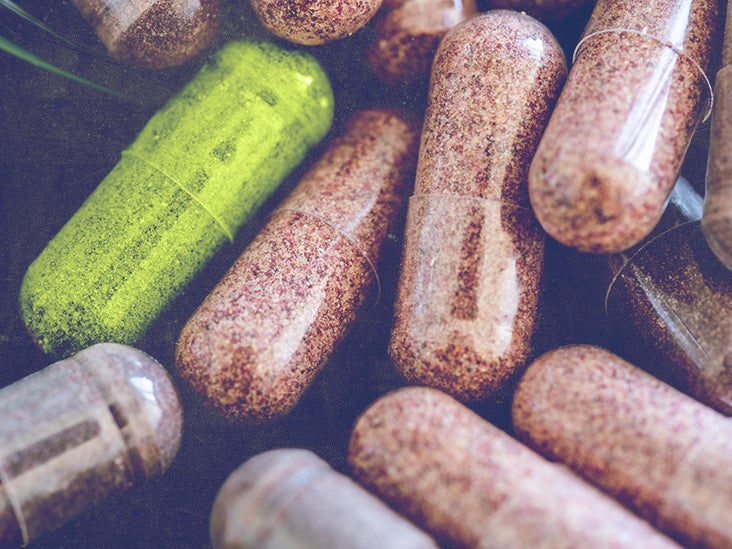.png)
In the fascinating world of biology, stem cells are hailed as the body's own repair system. These incredible cells have the remarkable ability to transform into various types of specialized cells, helping to regenerate damaged tissues and promote healing. While medical advancements have made great strides in utilizing stem cells, did you know that you can support the regeneration of your own stem cells naturally?
In this article, we will delve into the science behind stem cell regeneration and explore practical ways to enhance their natural healing potential.
Understanding Stem Cells
Before we dive into regeneration techniques, let's grasp the fundamentals. Stem cells are unique cells with the remarkable capacity to self-renew and differentiate into different cell types. They can be broadly classified into two main types: embryonic stem cells (derived from embryos) and adult stem cells (found in various tissues throughout the body). Our focus here will be on adult stem cells, as they play a crucial role in tissue repair and rejuvenation.
The Role of Stem Cells in Aging
We all know that with age comes wisdom, but unfortunately, it also brings a decline in our body's regenerative powers. Stem cells, those magical little helpers in our bodies, play a vital role in this process. Let's dive into how stem cell function declines with age, leading to slower healing and reduced regenerative capacity, and why rejuvenating these cells is crucial in combating age-related degeneration and promoting overall vitality.
Picture this: When we were younger, our bodies were like well-oiled machines, constantly renewing and repairing tissues with the help of our trusty stem cells. However, as the years pass, these once supercharged cells gradually lose their mojo. The number of stem cells decreases, and their ability to divide and differentiate into specialized cells diminishes. This slowdown affects various tissues and organs, resulting in slower healing, increased susceptibility to diseases, and a decrease in overall vitality.
So, why is stem cell rejuvenation essential in our fight against age-related degeneration? Well, think of it as unleashing the fountain of youth within us. By reviving and enhancing the function of our stem cells, we can tap into their incredible regenerative potential and slow down the aging process.

Scientists are exploring various strategies to rejuvenate stem cells, and some promising avenues have emerged. One approach is to boost the activity of existing stem cells by stimulating their micro-environment, also known as the niche. This can be done through factors such as growth factors, cytokines, and extracellular matrix components, which provide a nurturing environment for stem cell growth and function.
Another exciting area of research involves the use of young stem cells or factors derived from young stem cells. Studies have shown that introducing youthful stem cells or their secreted factors can rejuvenate aged stem cells and enhance their regenerative abilities. This approach holds immense promise for combating age-related degeneration and promoting overall vitality.
The Impact of Environmental Factors on Stem Cells
Our modern environment is filled with various external factors that can have a profound impact on our health, particularly on the health and regenerative capacity of our stem cells. Pollution, toxins, and radiation are among the culprits that can negatively affect stem cell function and hinder the body's natural healing processes. Understanding the significance of these environmental factors and taking steps to minimize exposure is essential for preserving the regenerative potential of our stem cells.
Pollution- Whether it's air pollution from vehicle emissions or industrial pollutants released into our waterways, poses a significant threat to stem cell health. These pollutants contain harmful substances that can directly damage the DNA of stem cells, impair their normal functioning, and even lead to genetic mutations. As a result, the regenerative capacity of stem cells is compromised, making it more challenging for our bodies to repair and rejuvenate damaged tissues.
Toxins- They are found in everyday products, such as heavy metals, pesticides, and chemicals used in cleaning agents, can also have a detrimental impact on stem cell health. These toxins can accumulate in our bodies over time, interfering with the normal function of stem cells and impeding their ability to carry out their regenerative role effectively. Minimizing exposure to these toxins by choosing natural and eco-friendly alternatives is crucial for supporting the health and vitality of our stem cells.
Radiation- Whether it's from excessive sun exposure or medical procedures such as radiation therapy, can also adversely affect stem cells. High levels of radiation can cause DNA damage in stem cells, leading to genetic mutations and potential disruptions in their normal function. Taking precautions to limit exposure to radiation, such as wearing sunscreen, and protective clothing, and adhering to safety guidelines during medical procedures, is vital for preserving the integrity and regenerative potential of stem cells.

Natural Ways to Regenerate Stem Cells
- Nourish Your Body with a Healthy Diet: Maintaining a well-balanced, nutrient-rich diet is key to supporting stem cell regeneration. Include a variety of fruits, vegetables, whole grains, lean proteins, and healthy fats in your meals. Antioxidant-rich foods like berries, leafy greens, and colorful vegetables are particularly beneficial as they help protect stem cells from oxidative stress.

- Practice Intermittent Fasting: Intermittent fasting, a pattern of eating that alternates between fasting and eating periods, has been found to stimulate stem cell regeneration. When you fast, your body enters a state called autophagy, where it breaks down and recycles old, damaged cells, including senescent cells. This process clears the way for the generation of fresh, rejuvenated stem cells.
- Exercise Regularly: Physical activity offers numerous health benefits, and it turns out that exercise also has a positive impact on stem cells. Studies have shown that moderate-intensity aerobic exercise promotes the mobilization and activation of stem cells, enhancing their regenerative potential. Incorporate activities such as brisk walking, jogging, cycling, or swimming into your routine to reap the benefits.

- Get Sufficient Sleep: Sleep is a critical component of overall health, and it plays a role in stem cell regeneration too. During sleep, the body goes into repair mode, and stem cells actively work to restore and regenerate tissues. Aim for 7-9 hours of quality sleep each night to optimize the regeneration process.

- Manage Stress Levels: Chronic stress can hinder the body's natural regenerative processes, including stem cell function. Practice stress-management techniques such as meditation, deep breathing exercises, yoga, or engaging in hobbies to reduce stress levels. By keeping stress in check, you create a more favourable environment for stem cell regeneration.
- Optimize Micronutrient Intake: Certain vitamins and minerals play a crucial role in supporting stem cell health and regeneration. Vitamin D, for instance, has been linked to improved stem cell function. Other essential nutrients include vitamin C, vitamin E, zinc, selenium, and omega-3 fatty acids. Consider consulting a healthcare professional to determine if you have any deficiencies and to discuss appropriate supplementation if necessary.
Did You Know?
Stem cells can be found in various parts of the body, including bone marrow, umbilical cord blood, and even in baby teeth!
Natural Supplements and Herbs for Stem Cell Support
In our quest to support stem cell health and regeneration, nature offers us a treasure trove of potential allies. Specific natural supplements and herbs have shown promising effects in enhancing stem cell function. Examples include resveratrol, curcumin, green tea extract, and ginseng. However, it's important to note that consulting with a healthcare professional is essential before incorporating any supplements into one's regimen.

Resveratrol, a compound found in red grapes and berries, has gained attention for its potential benefits in supporting stem cell health. Studies have indicated that resveratrol can activate certain genes involved in stem cell maintenance and promote their proliferation and differentiation, enhancing the regenerative capacity of these remarkable cells.
Curcumin, the active ingredient in turmeric, is another natural compound that has shown promise in supporting stem cell function. It exhibits anti-inflammatory and antioxidant properties, which can protect stem cells from damage and aid in their regenerative abilities. Curcumin has been studied for its potential benefits in various conditions where stem cell therapy holds promise.
Green tea extract, derived from the leaves of the Camellia sinensis plant, is rich in polyphenols and antioxidants. These compounds have been found to support stem cell health by reducing oxidative stress and inflammation, thus promoting their survival and regenerative potential. Green tea extract is also known for its potential in promoting cardiovascular health and supporting brain function.
Ginseng, a popular herb in traditional medicine, has been studied for its potential benefits in supporting stem cell health and regeneration. Ginsenosides, the active components of ginseng, have shown protective effects on stem cells by reducing oxidative stress and enhancing their survival and proliferation. Ginseng has also been associated with improved cognitive function and overall vitality.
While these natural supplements and herbs show promise, it is crucial to consult with a healthcare professional before incorporating them into your regimen. They can provide personalized guidance based on your specific health needs, existing conditions, and potential interactions with other medications.

Conclusion
Harnessing the power of stem cells for natural regeneration is an exciting prospect. By implementing simple lifestyle modifications, such as adopting a healthy diet, practicing intermittent fasting, exercising regularly, getting sufficient sleep, managing stress levels, and optimizing nutrient intake, you can enhance the regenerative potential of your own stem cells. Remember, these methods provide a supportive environment for stem cells to thrive, and while they cannot replace medical treatments, they offer a promising avenue for overall wellness and vitality.
Frequently Asked Questions (FAQs)
1. Can aging affect stem cell regeneration?
Ans: Yes, as we age, the regenerative capacity of stem cells naturally declines. The number of stem cells decreases, and their ability to divide and differentiate into specialized cells diminishes. However, through lifestyle modifications and potential therapies, we can aim to rejuvenate and enhance the function of aging stem cells.
2. Are stem cell therapies available for regenerative purposes?
Ans: Stem cell therapies are a rapidly evolving field with ongoing research. While some stem cell-based treatments exist for specific medical conditions, such as certain types of cancer and blood disorders, many potential therapies are still in the experimental stage and require further scientific validation and regulatory approval.
3. Can stem cell regeneration reverse the aging process?
Ans: While stem cell regeneration has the potential to improve tissue repair and overall health, it's important to have realistic expectations. Stem cell research and therapies are still in their early stages, and reversing the aging process is a complex goal that requires comprehensive approaches beyond stem cell regeneration alone.
4. Are there any risks associated with stem cell therapies?
Ans: Like any medical procedure, stem cell therapies carry potential risks and should be approached with caution. It's important to consult with qualified healthcare professionals and undergo treatments in reputable medical facilities that adhere to strict safety and ethical guidelines.
5. Can stem cell regeneration benefit specific health conditions?
Ans: Stem cell regeneration holds promise for a wide range of health conditions, including cardiovascular diseases, neurodegenerative disorders, and musculoskeletal injuries. However, the effectiveness and safety of stem cell therapies for these conditions are still being researched and evaluated.


.png)


